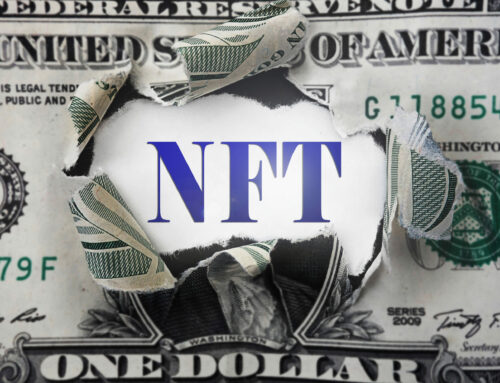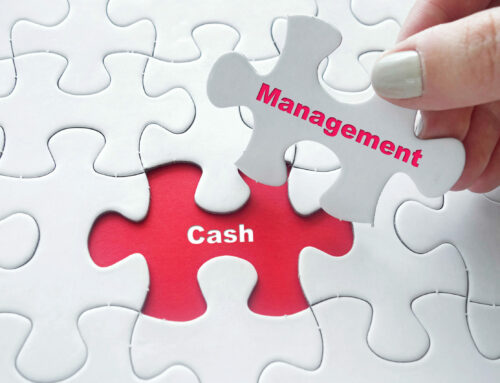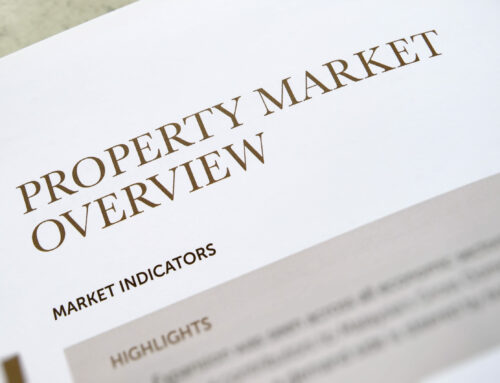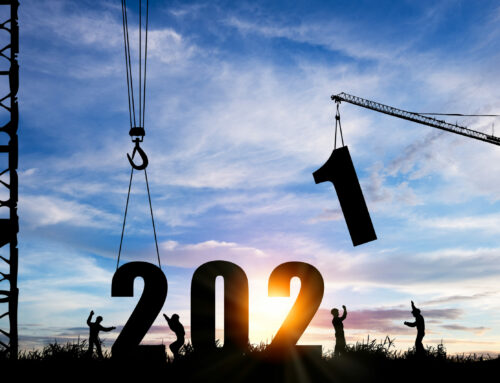This morning I was on the phone again with an "old" friend of mine. After 2 minutes we arrived at the favorite topic of all developers - how difficult it is to get reasonable plots of land at the moment. I covered this topic in my blog "The Challenge of Land Acquisition" a few weeks ago - today I'm going to talk specifically about the opportunities and risks of leasehold as an alternative to the classic purchase.
In contrast to other countries such as the UK or Holland, leasehold is still relatively new in Austria. The basic idea is that you do not buy the land, but receive a right to use it for a longer period of time (typically 60 or 100 years). Apartments, for example, are built on this land, which can be sold off as property. In return for providing the land, the developer or subsequent apartment owner makes a one-time or ongoing payment of a building lease interest. In the case of investment apartments, this is passed on to the tenant in the same way as the operating costs.
The advantages for the developer are obvious. On the one hand, leasehold offers the opportunity to obtain land that cannot be sold as property. This includes, for example, land owned by churches, family offices with a very long-term orientation, or insurance companies with a very conservative approach. On the other hand, building lease constructions are quite attractive from a financing point of view, especially if the building lease interest is low and can thus be easily offset against the operating costs. This lowers the TIC, but the building lease represents a value, which helps in the LTV presentation.
On the other hand, leasehold naturally imposes some restrictions on sales, as both some private and some institutional investors rule out the acquisition of apartments on leasehold plots.
-
- Insofar as you want to sell to private parties set the product in the middle class segment and if possible secure a 100-year building lease. In my observation, most private middle class families are relatively indifferent to the potential obligation to return the property in 100 years, as the emotional bond always extends only to the last living descendants (i.e. mostly the grandchildren of infant age). With a 100-year leasehold, it can be assumed that they will be able to live in the home until the end of their lives. In the case of a 60-year leasehold, the grandparent generation is at least partially eliminated. In my experience, very wealthy people often think in generations, so that luxury properties are more difficult to market as leasehold.
- When selling to institutional investors, leasehold tends to be less of a problem, at least in Vienna. The core argument here is that the 101st CF discounted to today's cash value is worth nothing almost regardless of the discount factor. In addition, the leasehold brings tax advantages. In my experience, there is little difference between building rights and ownership in terms of yield. As with every rule, there are exceptions. These often include investors from Eastern Europe (for cultural reasons) and insurance companies. And, of course, family offices. Probably the often transparent family tree, which reminds them that the inheritance is passed on in many generations, is detrimental here.
- It is important to choose the right broker, as not all are equally good with leasehold properties. Investment brokers tend to do easier than those with a private client focus, but just ask for a list of successfully brokered leasehold properties.
For all the lucky ones who have a residential property in Vienna in their possession and are thinking about developing it and selling it as condominiums, here's a thought-provoking approach to optimizing returns. Put the land and the development into 2 different SPVs, grant a leasehold right within the group and sell both separately. The yield for the leasehold issuing land is sometimes well below the yield of the property. You wonder who the buyers of the building lease are? Again, old acquaintances: Insurance companies, the church and now possibly family offices.






What’s up, its nice piece of writing about media print,
we all be familiar with media is a impressive source of facts.
What’s up everyone, it’s my first visit at this site, and article is really fruitful
for me, keep up posting these articles.
Howdy! This is my first comment here so I just wanted to give a quick shout
out and tell you I genuinely enjoy reading your posts. Can you suggest any other blogs/websites/forums that deal
with the same subjects? Thanks!
My brother suggested I might like this web site. He was entirely right.
This post actually made my day. You cann’t imagine simply how much time I had
spent for this information! Thanks!
Hello there, You have done an excellent job.
I’ll definitely digg it and personally recommend
to my friends. I am sure they will be benefited from this site.
Helpful information. Fortunate me I found your website by chance, and I’m surprised why this twist
of fate did not happened earlier! I bookmarked it.
I love what you guys are up too. This kind of clever work and reporting!
Keep up the superb works guys I’ve incorporated you guys to my blogroll.
This page certainly has all the info I wanted concerning this subject and didn’t
know who to ask.
Hi there Dear, are you actually visiting this web
page regularly, if so afterward you will absolutely obtain nice know-how.
Terrific article! This is the kind of information that should be shared around the net.
Shame on the search engines for not positioning this put up upper!
Come on over and talk over with my website . Thank you =)
It’s very easy to find out any topic on web as compared to books, as I
found this piece of writing at this web site.
Someone necessarily assist to make significantly posts I might state.
That is the very first time I frequented your web page and so
far? I surprised with the research you made to make this particular
submit extraordinary. Magnificent job!
I’m extremely inspired with your writing talents and also
with the layout for your blog. Is that this a paid
subject or did you modify it your self? Either
way stay up the excellent high quality writing, it is uncommon to look a great
weblog like this one these days..
Thanks to my father who stated to me regarding this
weblog, this website is really awesome.
Magnificent beat ! I wish to apprentice while you amend your website, how could i subscribe for a blog website?
The account aided me a acceptable deal. I had been a little bit acquainted of this your
broadcast provided bright clear idea
Greate pieces. Keep posting such kind of information on your site.
Im really impressed by your blog.
Hey there, You have done a great job. I’ll certainly digg it and personally recommend to my friends.
I am sure they’ll be benefited from this website.
Quality content is the key to be a focus for the users to visit the site, that’s what this web page is providing.
Its like you read my mind! You appear to know so much about
this, like you wrote the book in it or something.
I think that you could do with some pics to drive the message home a bit, but
instead of that, this is excellent blog. A great read.
I’ll definitely be back.
When I originally left a comment I seem to have clicked on the -Notify me when new comments are added- checkbox and now every
time a comment is added I receive four emails with the exact same comment.
There has to be a way you are able to remove me from that service?
Thanks a lot!
Hi there, just wanted to say, I enjoyed this article.
It was practical. Keep on posting!
My family members every time say that I am wasting my time here at web, however I know
I am getting familiarity every day by reading such fastidious posts.
Wow, this piece of writing is pleasant, my younger sister is analyzing these things, thus I am
going to let know her.
Its like you learn my mind! You seem to grasp a lot
approximately this, such as you wrote the e book in it or something.
I think that you could do with some percent to pressure the message home a bit, but instead of that, this is great blog.
A fantastic read. I will certainly be back.
Wonderful blog! Do you have any tips and hints for aspiring writers?
I’m planning to start my own website soon but I’m a little lost on everything.
Would you recommend starting with a free platform like WordPress or go
for a paid option? There are so many options out there that
I’m completely overwhelmed .. Any recommendations? Bless you!
It’s very effortless to find out any topic on web as compared to
books, as I found this paragraph at this website.
If you would like to increase your experience simply keep visiting this web site
and be updated with the most up-to-date gossip posted here.
Can you explain the concept of a join in Oracle?
He believes in the power of collaboration.
Hi there to all, the contents existing at this web site
are really awesome for people knowledge, well, keep up the good work fellows.
I highly recommend Quick Fix Pro to everyone looking for effective solutions; it has greatly improved my business visibility on Bing Places. With Quick Fix Pro, I have experienced remarkable results in optimizing my presence on Bing Places, making it easier for potential customers to find and engage with my business.
Dear gregor-pfeiffer.at webmaster, Keep sharing your knowledge!
Hello gregor-pfeiffer.at admin, Your posts are always a great read.
Dear gregor-pfeiffer.at administrator, Well done!
Dear gregor-pfeiffer.at admin, Your posts are always on topic and relevant.
Dear gregor-pfeiffer.at webmaster, Thanks for the well-presented post!
fastest vpn service winscribe vpn best vpn australia https://free-vpn-proxy.com/
fastest vpn service winscribe vpn best vpn australia the best vpn for windows 10
vpn for windows free best vpn for japan best
vpn to use https://imfreevpn.net/
vpn for windows free best vpn for japan best vpn to use vpn software free
fastest vpn services nord vpn free avast secure line vpn reviews https://superfreevpn.net/
fastest vpn services nord vpn free avast secure line vpn reviews free vpn for firestick
free vpn for windows 7 hide my asss vpn turbo vpn download https://ippowervpn.net/
free vpn for windows 7 hide my asss vpn turbo vpn download free browser vpn
hide vpn best vpn reddit 2019 best vpn services https://shiva-vpn.com/
hide vpn best vpn reddit 2019 best vpn services best vpn for pc free download
hide me vpn free best vpn for firestick free best buy vpn https://rsvpnorthvalley.com/
hide me vpn free best vpn for firestick free best buy vpn what is avast secure line vpn
softether vpn client manager torrent vpn free gaming vpn https://freevpnconnection.com/
softether vpn client manager torrent vpn free gaming vpn vpn for mac
best vpn for hulu free unlimited vpn free vpn no download https://accountingvpn.com/
best vpn for hulu free unlimited vpn free vpn no download buy residential vpn
best free vpn cnet how to get a free vpn best windows vpn 2018 https://bordervpn.com/
best free vpn cnet how to get a free vpn best windows vpn 2018 strong vpn
opera vpn review good free vpn what is vpn service https://courtvpn.com/
opera vpn review good free vpn what is vpn service best cheap vpn
best vpn for binance best vpn for firestick 2022 vpn software free https://govtvpn.com/
best vpn for binance best vpn for firestick 2022 vpn software free best vpn 2018 reddit
Dear gregor-pfeiffer.at webmaster, Your posts are always well organized and easy to understand.
To the gregor-pfeiffer.at administrator, Your posts are always well thought out.
Dear gregor-pfeiffer.at administrator, Your posts are always well researched and well written.
Dear gregor-pfeiffer.at administrator, Thanks for the comprehensive post!
To the gregor-pfeiffer.at administrator, Keep sharing your knowledge!
Hi gregor-pfeiffer.at webmaster, Thanks for the well-written and informative post!
Dear gregor-pfeiffer.at administrator, You always provide clear explanations and definitions.
Hello gregor-pfeiffer.at owner, Your posts are always well received by the community.
Hello gregor-pfeiffer.at webmaster, Thanks for sharing your thoughts!
Hi gregor-pfeiffer.at administrator, Thanks for the post!
To the gregor-pfeiffer.at webmaster, Your posts are always well-written and engaging.
Hello gregor-pfeiffer.at owner, Thanks for the educational content!
To the gregor-pfeiffer.at administrator, Your posts are always interesting.
Hi gregor-pfeiffer.at owner, Your posts are always well-received by the community.
Dear gregor-pfeiffer.at admin, Keep the good content coming!
Hi gregor-pfeiffer.at admin, Keep the good content coming!
Hi gregor-pfeiffer.at webmaster, Thanks for the well-organized and comprehensive post!
To the gregor-pfeiffer.at administrator, Thanks for the valuable information!
Hi gregor-pfeiffer.at webmaster, Your posts are always interesting.
Dear gregor-pfeiffer.at webmaster, Good to see your posts!
Dear gregor-pfeiffer.at administrator, Your posts are always well-written and easy to understand.
Hi gregor-pfeiffer.at administrator, Your posts are always informative and well-explained.
Hello gregor-pfeiffer.at owner, Thanks for the well-researched post!
Dear gregor-pfeiffer.at webmaster, Thanks for the informative post!
Dear gregor-pfeiffer.at administrator, Your posts are always well written.
%random_anchor_text% %random_anchor_text% %random_anchor_text% https://customessaywwriting.com/
%random_anchor_text% %random_anchor_text% %random_anchor_text% .
help with essay writing buy custom essays professional essay writer https://buytopessays.com/
help with essay writing buy custom essays professional essay writer can i hire someone to write my essay
best essay writers online best essay writers review professional essay writing help https://au-bestessays.org/
best essay writers online best essay writers review professional
essay writing help admission essay service
Dear gregor-pfeiffer.at webmaster, You always provide valuable feedback and suggestions.
Hello gregor-pfeiffer.at admin, Excellent work!
Hi gregor-pfeiffer.at owner, Thanks for the well-structured and well-presented post!
Dear gregor-pfeiffer.at webmaster, Your posts are always well structured and easy to follow.
To the gregor-pfeiffer.at owner, You always provide clear explanations and step-by-step instructions.
Dear gregor-pfeiffer.at admin, Your posts are always interesting.
“이제 나가지말구 간편하게 계신곳에서 편하게 이용하세요 ~
서울 전지역 모텔 . 호텔 . 오피스텔 . 원룸 등에서
전화한통만 주시면 ok ~ !!
직접 방문해서 케어 해드립니다 ” 출장안마
출장안마, 출장마사지, 20대 한국인 매니저가 직접방문하는 출장안마
“선입금이나 예약비 없이 계신 곳에서
편리하게 출장안마 & 출장마사지를
이용 하실 수 있습니다” 출장안마
“서울 / 경기 / 인천 수도권 전지역
선입금이나 예약금 없이
직접 보시고 결제해주시는
100% 후불제 서비스 입니다.” 출장안마
“선입금&예약금없는 후불제
시그니처출장마사지 시그니처출장안마 입니다.
자택 오피스텔 모텔 호텔 등 에서 이용가능하며
경기 인천 서울 전지역 30분 이내
방문 가능합니다” 출장안마
“인천 경기 서울 수도권 전지역
선입금 없는 100% 후불제
호텔 . 모텔 . 오피스텔 . 자택 등으로 직접 방문해서 케어 해드립니다.” 출장안마
Dear gregor-pfeiffer.at administrator, You always provide clear explanations and step-by-step instructions.
Dear gregor-pfeiffer.at administrator, Good work!
Hi gregor-pfeiffer.at administrator, Thanks for the post!
local dating sites free europe free chat 100% dating site https://freewebdating.net/
local dating sites free europe free chat 100% dating site 100% free dating sites no fees
top free dating sites single woman free europe free chat https://onlinedatinghunks.com/
top free dating sites single woman free europe free chat free online
nearby dating online lesbian mature plenty fish https://jewish-dating-online.net/
nearby dating online lesbian mature plenty fish asian dating
best online dating new 100 free datinsites chat https://onlinedatingsurvey.com/
best online dating new 100 free datinsites chat i’m being 100 percent serouis in tagalog
single senior dating sites mature nl free professional dating sites https://sexanddatingonline.com/
single senior dating sites mature nl free professional dating sites dating services
Hello gregor-pfeiffer.at admin, You always provide clear explanations and step-by-step instructions.
Hello gregor-pfeiffer.at webmaster, Keep up the good work, admin!
Hello gregor-pfeiffer.at admin, You always provide key takeaways and summaries.
Hello gregor-pfeiffer.at webmaster, Thanks for the well written post!
Hello gregor-pfeiffer.at admin, Well done!
To the gregor-pfeiffer.at admin, You always provide great insights.
Hi gregor-pfeiffer.at owner, You always provide great insights.
coursework topics coursework example pdf coursework ka hindi https://writingacoursework.com/
coursework topics coursework example pdf coursework ka hindi coursework history a level
custom coursework writing service coursework examination coursework layout https://courseworkinfotest.com/
custom coursework writing service coursework examination coursework layout coursework only degree
Dear gregor-pfeiffer.at administrator, Thanks for the well-structured and well-presented post!
coursework helper coursework moderation coursework for masters degree https://buycoursework.org/
coursework helper coursework moderation coursework for masters degree coursework masters meaning
coursework help university coursework umich stats coursework
on a resume https://coursework-expert.com/
coursework help university coursework umich stats coursework on a resume creative writing coursework ideas
Dear gregor-pfeiffer.at owner, Your posts are always insightful and valuable.
coursework papers nursing coursework coursework
and thesis https://courseworkdownloads.com/
coursework papers nursing coursework coursework and thesis coursework meaning in english
coursework in area of expertise coursework geeks coursework define https://courseworkninja.com/
coursework in area of expertise coursework geeks coursework define coursework sample